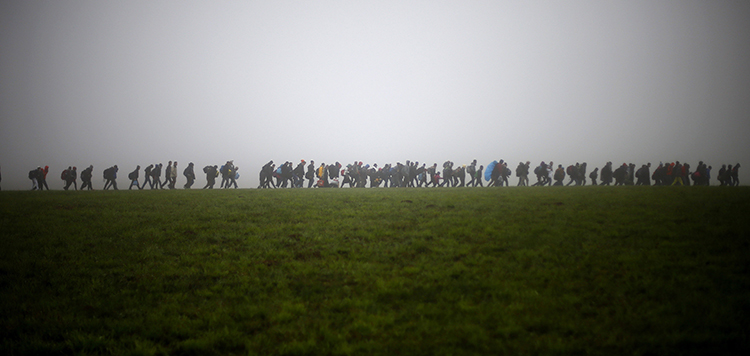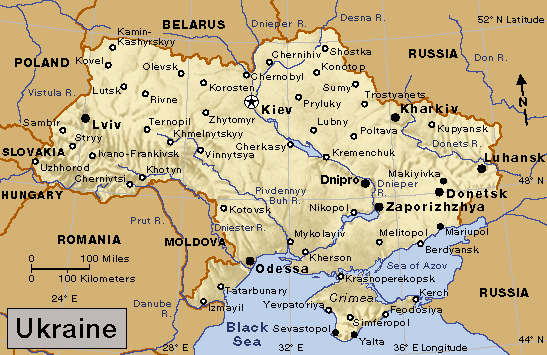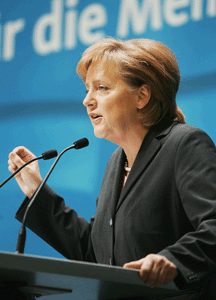One Millionth Migrant Reaches Europe
Wednesday, December 23rd, 2015December 23, 2015
As of Monday, more than 1 million migrants have entered Europe by sea or land this year, according to the International Organization for Migration, the leading inter-governmental organization in the field of migration. This number represents a fourfold rise over the total last year. Most of the migrants—more than 970,000 people—have come by way of the Mediterranean Sea. The rest came by land, crossing from Turkey into Bulgaria and Greece. More migrants entered Europe across the Mediterranean in October than in all of 2014. Europe now faces the biggest refugee crisis since World War II (1939-1945).

A group of migrants make their way over a meadow after crossing the border between Austria and Germany in Wegscheid near Passau, Germany, in October 2015. Credit: © Matthias Schrader, AP Photo
Half of those crossing the Mediterranean in 2015 were Syrians escaping civil war in their homeland. More than 4 million Syrians have fled the four-year conflict. Afghans made up 20 percent of the migrants, and Iraqis accounted for 7 percent. Nearly 3,700 of those traveling by sea have drowned or are missing after attempting to cross the sea in unseaworthy boats.
Germany was the main destination for many of the migrants entering Europe. The most economically powerful country in the European Union (EU), Germany has led the way in extending a welcome to migrants. The EU is an economic and political partnership among 28 European countries. In August, German Chancellor Angela Merkel adopted a broad refugee policy that dramatically expanded the flow of Syrian refugees to Europe. Although Merkel initially drew widespread praise for the humanitarian spirit of her open-door refugee policy, she later faced criticism at home and abroad. The policy exacerbated political rifts within the EU.
Merkel’s offer immediately attracted tens of thousands of additional asylum seekers, including many non-Syrians. The large flow of asylum seekers is imposing major costs on receiving communities and on transit countries that are ill-equipped to handle the logistical burdens of the flow. Many of the governments of these countries resent the situation and some have put up fences. Hungary and Slovakia are taking legal action at the European Court of Justice to challenge EU plans to share asylum seekers across EU states. Politicians in some of the countries have warned that the refugee crisis has exposed problems in Europe’s Schengen passport-free area, saying that states must agree on migrant quotas. In addition, security risks were heightened in the aftermath of the terrorist attacks in Paris last month. Some of the attackers were believed to have come to France as part of the flow of migrants through Greece.
Although Merkel recently announced that she would make changes to her policy, popular support for Merkel and her party has waned because of the influx of migrants. Some commentators questioned Merkel’s political future. In the meantime, Merkel appears to be committed to her earlier pledge, “Wir schaffen das” (“We will cope”), asserting that Germany would continue to be a welcoming host to refugees. Anything else, she said, would “not be my country.”
Additional World Book article:




